Swami Vivekananda
Swami Vivekananda, a revered Hindu monk who introduced Vedanta to the West. Discover his impact on spirituality, universal brotherhood
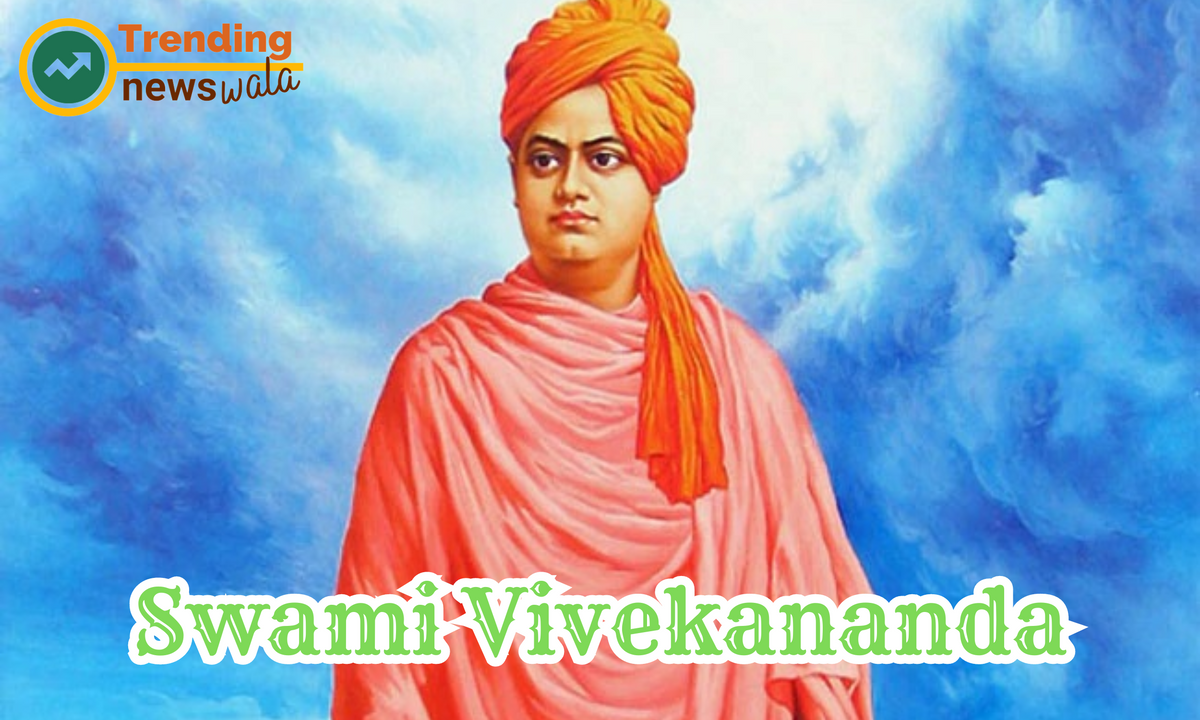
Swami Vivekananda, a revered spiritual leader and philosopher, stands as a beacon of wisdom and inspiration in the annals of history. Born on January 12, 1863, in Kolkata, India, as Narendra Nath Datta, he was a key figure in the introduction of Indian philosophies of Vedanta and Yoga to the Western world. In this article, we delve into the life, teachings, and enduring impact of Swami Vivekananda, a spiritual luminary whose words continue to resonate globally.
Swami Vivekananda, a luminary of spirituality and a harbinger of wisdom, continues to inspire generations with his profound teachings. His vision of a harmonious world, built on the principles of universal acceptance and service to humanity, remains a guiding light. As we reflect on the life and legacy of Swami Vivekananda, we find timeless lessons that transcend cultural boundaries, inspiring individuals to strive for self-realization and contribute to the welfare of humanity.
Early Life and Spiritual Quest

Swami Vivekananda's early life was marked by a deep spiritual inclination. His encounter with his guru, Sri Ramakrishna Paramahansa, proved transformative. Under the guidance of Sri Ramakrishna, Vivekananda imbibed the essence of various spiritual paths and embraced the philosophy of Vedanta, advocating for the idea of realizing the divinity within.
Swami Vivekananda, the spiritual giant and a key figure in the introduction of Indian philosophies to the West, embarked on a remarkable journey that began with his early life and spiritual quest. Born as Narendra Nath Datta on January 12, 1863, in Kolkata, India, Vivekananda's formative years laid the foundation for a profound spiritual exploration that would eventually inspire millions around the globe.
Childhood and Family Environment: Growing up in a family with a rich cultural and intellectual heritage, young Narendra, or Naren, as he was fondly called, was exposed to a diverse range of thoughts and ideas. His father, Vishwanath Datta, was an attorney, and his mother, Bhuvaneshwari Devi, was a woman of deep spirituality. This nurturing environment played a crucial role in shaping Vivekananda's inquisitive mind.
Encounter with Sri Ramakrishna: The turning point in Vivekananda's life occurred when he met Sri Ramakrishna Paramahansa, a saint and mystic, in 1881. Initially skeptical about the existence of God, Naren's conversations with Sri Ramakrishna sparked a profound spiritual transformation. The saint's simple yet powerful teachings resonated with the young seeker, laying the groundwork for his spiritual awakening.
Spiritual Mentorship: Under the guidance of Sri Ramakrishna, Vivekananda delved into the intricacies of various spiritual paths. The saint's teachings emphasized experiential realization of the divine and the universality of all religions. This mentorship not only deepened Vivekananda's understanding of spirituality but also instilled in him a sense of purpose to spread these teachings.
Quest for the Absolute: Vivekananda's spiritual quest was characterized by an intense desire to experience the absolute truth. He engaged in rigorous meditation, contemplation, and self-inquiry, seeking to unravel the mysteries of existence. This quest for the absolute would later become a guiding principle in his teachings on Vedanta.
The Concept of Jnana Yoga: Vivekananda's spiritual journey led him to embrace the path of Jnana Yoga, the path of knowledge. Rooted in the philosophy of Vedanta, this path emphasizes the realization of the self through discernment and intellectual inquiry. Vivekananda's deep philosophical insights, later shared on global platforms, were nurtured during this phase of his life.
Renunciation and Monastic Life: In 1887, following the passing of his spiritual guide Sri Ramakrishna, Vivekananda chose the path of renunciation and embraced monastic life. He traveled extensively across India, living the life of a wandering monk. These years of asceticism not only strengthened his resolve but also provided firsthand insights into the socio-economic conditions of the country.
Global Impact: Vivekananda's spiritual quest laid the groundwork for his global impact. His participation in the Parliament of the World's Religions in Chicago in 1893 marked a historic moment. His speech, beginning with the words "Sisters and Brothers of America," introduced the world to the depth of Indian spirituality and set the stage for his role as a global ambassador of Vedanta.
Swami Vivekananda's early life and spiritual quest were foundational to his later role as a spiritual luminary and global philosopher. The formative years spent in exploration, guided by the teachings of Sri Ramakrishna, shaped Vivekananda's worldview and laid the groundwork for his mission to disseminate the eternal truths of Vedanta worldwide. His journey from a curious seeker to a revered spiritual leader remains a testament to the transformative power of a sincere and dedicated spiritual quest.
Parliament of the World's Religions (1893)

Swami Vivekananda gained international recognition at the Parliament of the World's Religions held in Chicago in 1893. His opening address, beginning with the words "Sisters and Brothers of America," captivated the audience and introduced Hindu philosophy to the Western world. Vivekananda's eloquence, wisdom, and call for universal acceptance left an indelible mark.
The Parliament of the World's Religions held in Chicago in 1893 stands as a watershed moment in the history of interfaith dialogue, and at its forefront was Swami Vivekananda, a luminary and spiritual ambassador from India. The event marked the first time representatives from various religious traditions converged on a global stage to share their insights, fostering understanding and unity among diverse faiths. In this article, we explore the significance of the Parliament of the World's Religions and the indelible impact of Swami Vivekananda's historic address.
A Confluence of Faiths: Convened as part of the World's Columbian Exposition, the Parliament of the World's Religions aimed to promote global interfaith understanding. It brought together religious leaders, scholars, and practitioners from different corners of the world to engage in dialogue, emphasizing the commonality of spiritual ideals and fostering mutual respect.
Swami Vivekananda's Historic Address: Swami Vivekananda, at the young age of 30, represented Hinduism at the Parliament and delivered a historic address on September 11, 1893. His opening words, "Sisters and Brothers of America," captured the audience's attention, and his subsequent speech resonated with a message of universal tolerance, acceptance, and the exploration of inner divinity.
Universal Brotherhood: One of the central themes of Swami Vivekananda's address was the concept of universal brotherhood. He asserted that religious differences were like different paths leading to the same summit, emphasizing that humanity should embrace and respect diversity while recognizing the inherent unity that binds all people together.
Introduction of Hindu Philosophy to the West: Vivekananda's address served as a remarkable introduction of Hindu philosophy to the Western world. He expounded on Vedanta, Yoga, and the broader principles of Hinduism, dispelling misconceptions and presenting the profound wisdom of India's ancient traditions. This exposition marked a turning point in Western perceptions of Eastern spirituality.
Call for Religious Harmony: Swami Vivekananda passionately advocated for religious harmony, asserting that no one religion could claim a monopoly on truth. He urged the audience to go beyond mere tolerance and embrace the idea of acceptance and appreciation for the diverse religious tapestry that defines humanity.
Impact on Interfaith Dialogue: Vivekananda's speech had a profound impact on the Parliament and on the subsequent trajectory of interfaith dialogue. His eloquent articulation of the principles of harmony and unity laid the groundwork for a more inclusive and respectful understanding of religious diversity on a global scale.
Legacy and Commemoration: The Parliament of the World's Religions left an enduring legacy. It has since become a recurring event, fostering ongoing discussions on interfaith understanding and collaboration. Swami Vivekananda's address is commemorated on its anniversary, and his words continue to inspire those engaged in the pursuit of religious harmony and unity.
Influence on Vivekananda's Mission: The Parliament of the World's Religions served as a catalyst for Swami Vivekananda's broader mission of spreading the teachings of Vedanta and promoting the ideals of spiritual pluralism. It propelled him onto the global stage, where he continued to advocate for a universal approach to spirituality and the recognition of the divine essence in every individual.
The Parliament of the World's Religions in 1893 marked a pivotal moment in the history of interfaith dialogue, and Swami Vivekananda's historic address illuminated the path toward understanding, tolerance, and unity. His vision of universal brotherhood transcended religious boundaries, leaving an indelible mark on the landscape of global spirituality. The Parliament remains a symbol of hope and cooperation, reminding the world of the transformative power of dialogue and shared understanding in the pursuit of a harmonious coexistence.
Universal Religion and Harmony

Central to Swami Vivekananda's teachings was the concept of a universal religion that transcends dogmas and embraces the essential unity of all religions. He emphasized the importance of understanding and respecting diverse faiths, promoting the idea that each individual could realize their spiritual potential through various paths.
Swami Vivekananda, a spiritual luminary and ambassador of India's ancient wisdom, envisioned a world where diverse religious traditions coexist in harmony under the umbrella of a universal religion. His teachings on universal brotherhood and the essential unity of all faiths continue to resonate, offering a transformative vision for a world marked by understanding, tolerance, and shared spirituality. In this article, we delve into Swami Vivekananda's philosophy of a universal religion and the harmony that can arise from embracing our shared humanity.
Unity in Diversity: Swami Vivekananda's vision for a universal religion begins with the acknowledgment of the inherent unity that underlies the diversity of religious expressions. He believed that despite the apparent differences in rituals, beliefs, and practices, the core principles of love, compassion, and the pursuit of truth were shared across all religions.
Essence of All Religions: According to Vivekananda, each religion is a unique path leading to the same ultimate truth. He emphasized that the differences in rituals and doctrines were like various rivers flowing into the same ocean of divinity. Recognizing the essential oneness in the teachings of different faiths, Vivekananda advocated for a holistic and inclusive understanding of spirituality.
Beyond Sectarianism: Vivekananda condemned sectarianism and dogmatism, asserting that narrow-mindedness was the root cause of religious conflicts. He urged followers of various faiths to rise above religious exclusivity and embrace a broader, more inclusive perspective that sees the divine in every individual, regardless of their religious affiliation.
Universal Brotherhood: The concept of universal brotherhood was at the heart of Vivekananda's teachings. He envisioned a world where individuals, irrespective of their religious backgrounds, would recognize each other as siblings in the journey of life. This profound sense of interconnectedness forms the basis for true harmony and cooperation.
Religious Tolerance: Vivekananda's philosophy extended beyond mere tolerance to genuine respect and acceptance. He believed that true harmony could only be achieved when individuals not only tolerated but actively appreciated and celebrated the diversity of religious beliefs, recognizing them as different facets of the divine.
Personal Realization of Divinity: The crux of Vivekananda's universal religion lies in the personal realization of divinity. He encouraged individuals to seek the divine within themselves through practices like meditation and self-inquiry. This direct experiential knowledge, he believed, transcends the limitations of dogma and fosters a genuine understanding of spiritual truths.
Practical Application: Swami Vivekananda did not just theorize about a universal religion; he actively worked towards its realization. The Ramakrishna Mission, founded by him, engages in various social service activities without discrimination based on religion, emphasizing the practical application of spiritual ideals in serving humanity.
Legacy of Harmony: Vivekananda's teachings on universal religion and harmony continue to inspire individuals and organizations worldwide. His messages resonate in the ongoing efforts towards interfaith dialogue, understanding, and the promotion of a world where diverse religious traditions can coexist peacefully.
Swami Vivekananda's vision of a universal religion and harmony provides a timeless blueprint for fostering global understanding and cooperation. By recognizing the common spiritual essence that unites humanity and appreciating the diversity of religious expressions, Vivekananda's philosophy invites individuals to transcend religious divides and work towards a world marked by mutual respect, compassion, and shared spiritual values. Embracing this vision, we take a step closer to realizing the dream of a unified, harmonious human family.
Service to Humanity

Vivekananda believed in the practical application of spirituality for the betterment of society. The Ramakrishna Mission, founded by him in 1897, aimed at serving humanity, irrespective of caste, creed, or religion. The mission actively engages in educational, healthcare, and relief activities, embodying Vivekananda's vision of selfless service.
Swami Vivekananda, a spiritual luminary and the driving force behind the Ramakrishna Mission, placed an unwavering emphasis on the concept of service to humanity. His teachings advocated for selfless action, viewing service as a sacred duty and a means to realize one's divinity. In this article, we explore the profound philosophy of service to humanity as articulated by Swami Vivekananda and its enduring impact on fostering positive change in the world.
The Essence of Karma Yoga: Swami Vivekananda drew inspiration from the ancient Indian philosophy of Karma Yoga, which emphasizes performing actions selflessly and without attachment to the results. He believed that true spirituality is not confined to the solitude of monastic life but is expressed through dedicated and selfless service to fellow beings.
Service as Worship: Vivekananda elevated the act of service to the status of worship. According to him, serving humanity was equivalent to serving the divine. This profound shift in perspective encourages individuals to approach every task, no matter how mundane, with a sense of sacredness and devotion.
The Ramakrishna Mission: Swami Vivekananda founded the Ramakrishna Mission in 1897 as a manifestation of his vision for serving humanity. The mission's motto, "Atmano Mokshartham Jagad Hitaya Cha" (For one's own salvation and for the welfare of the world), encapsulates the dual purpose of spiritual realization and selfless service.
Education for Empowerment: The Ramakrishna Mission places a strong emphasis on education as a means of empowering individuals and uplifting communities. Vivekananda believed that education is the key to social progress and aimed to provide quality education that combines academic excellence with moral and spiritual values.
Healthcare Initiatives: Recognizing the interconnectedness of physical and spiritual well-being, the Ramakrishna Mission actively engages in healthcare initiatives. Hospitals, clinics, and mobile medical units are established to provide accessible healthcare to those in need, embodying the spirit of compassion and service.
Relief and Rehabilitation: In times of natural disasters and crises, the Ramakrishna Mission swiftly mobilizes relief efforts. Whether it's providing food, shelter, or medical assistance, the mission stands as a beacon of hope and support, exemplifying the principle of immediate and selfless service during times of adversity.
Emphasis on Character Building: Swami Vivekananda believed that true service goes beyond meeting immediate needs; it involves the holistic development of individuals. The mission's activities include character-building programs, vocational training, and moral education to instill values that contribute to the overall upliftment of society.
Inspiring a Global Movement: Swami Vivekananda's philosophy of service to humanity has inspired a global movement. Beyond the boundaries of the Ramakrishna Mission, individuals and organizations worldwide draw inspiration from Vivekananda's teachings, engaging in diverse forms of service that align with the spirit of selfless action.
Service to humanity, as envisioned by Swami Vivekananda, transcends mere philanthropy; it is a spiritual practice that transforms both the giver and the receiver. The philosophy encourages individuals to recognize the divinity in all beings and actively engage in acts of kindness, compassion, and support. Swami Vivekananda's legacy of service continues to inspire countless individuals, reminding us that in serving humanity, we not only contribute to the welfare of the world but also find the path to our own spiritual fulfillment.
Vedanta and Modern Science
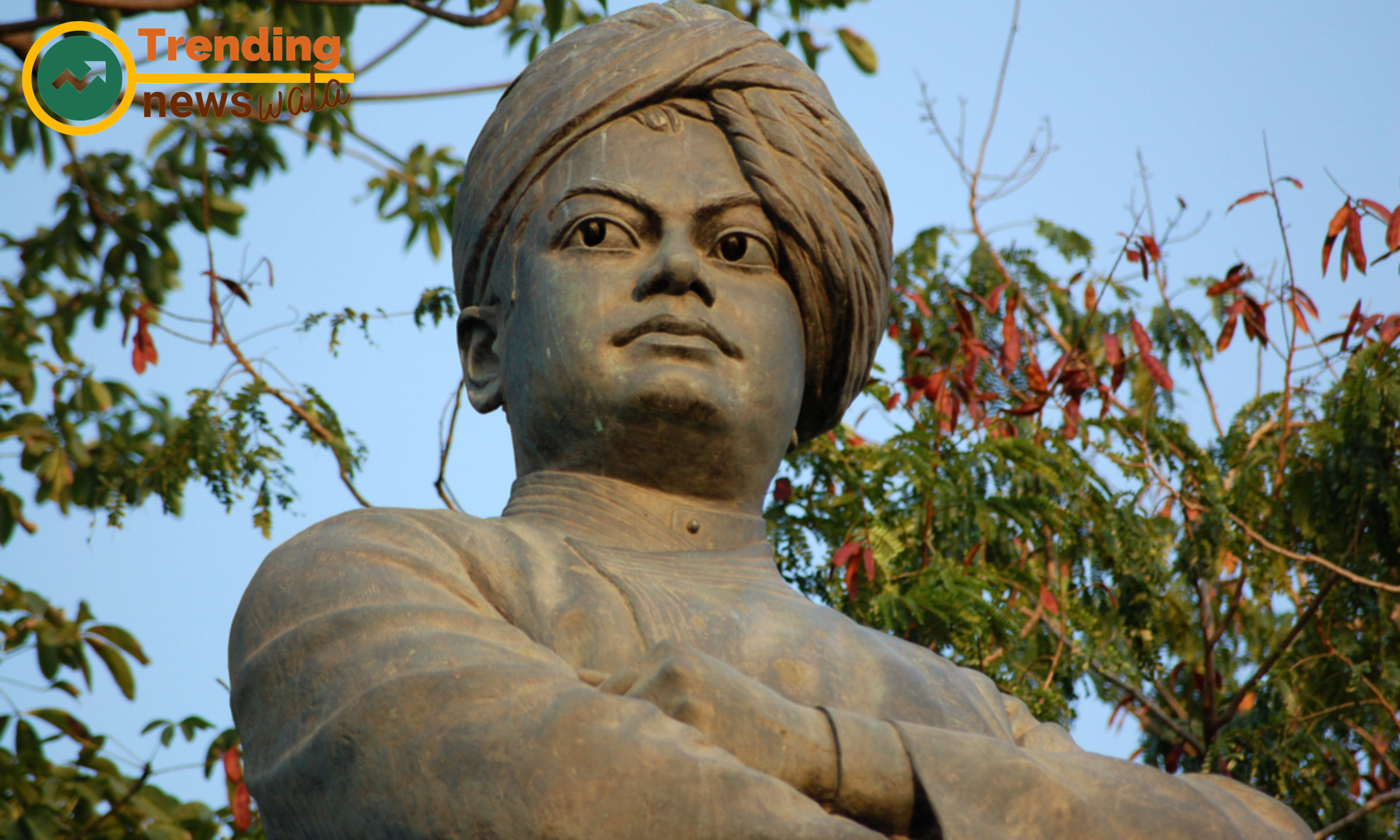
Swami Vivekananda sought to bridge the gap between spirituality and science. He posited that Vedanta, the ancient Indian philosophy, and modern science were not mutually exclusive but rather complementary in their pursuit of truth. Vivekananda's emphasis on the harmony between faith and reason remains relevant in contemporary discussions.
Vedanta, one of the oldest philosophical systems originating from the ancient scriptures of India, and modern science may seem like disparate realms of thought. However, the convergence of these seemingly distinct paths has become a topic of significant interest. Swami Vivekananda, a key figure in the introduction of Vedanta to the Western world, saw a harmonious relationship between these two domains. In this article, we delve into the fascinating dialogue between Vedanta and modern science, exploring how these traditions, despite their apparent differences, share common ground in the pursuit of understanding the nature of reality.
Vedanta: Vedanta, derived from the Sanskrit words "Veda" (knowledge) and "anta" (end or conclusion), is a philosophical system that interprets the essence of the Vedas. Rooted in the Upanishads, Vedanta explores fundamental questions about the nature of reality, the self (Atman), and the ultimate reality (Brahman). It advocates for direct experiential knowledge and emphasizes the interconnectedness of all existence.
Science: Modern science, with its empirical and evidence-based approach, seeks to understand the natural world through observation, experimentation, and rational inquiry. It has led to groundbreaking discoveries, technological advancements, and an evolving understanding of the universe, challenging and expanding our perception of reality.
Shared Foundations: Unity in Diversity: One of the key principles of Vedanta is the concept of "Ekam sat vipra bahudha vadanti" — the truth is one, but the wise speak it in various ways. This echoes the scientific acknowledgment of unity in diversity, where different disciplines converge to uncover fundamental truths about the universe, reinforcing the idea that diverse paths can lead to a unified understanding.
Consciousness and Quantum Physics: Vedanta delves into the nature of consciousness, positing that it is fundamental to the fabric of reality. This aligns with certain interpretations in quantum physics, where the role of consciousness in the observation of quantum phenomena has sparked discussions about the interplay between the observer and the observed.
Non-Duality and Relativity: Vedanta's principle of non-duality (Advaita) asserts the essential unity of all existence, beyond the illusion of multiplicity. Interestingly, Albert Einstein's theory of relativity, in its exploration of space-time as a unified entity, resonates with the Vedantic idea of an underlying oneness beyond apparent distinctions.
Holistic View of Reality: Both Vedanta and modern science share a holistic view of reality. While science explores the external aspects of the material world, Vedanta probes the inner dimensions of consciousness and subjective experience. Together, they offer a comprehensive perspective that integrates the objective and subjective realms of existence.
Ethical Considerations: Vedanta places a strong emphasis on ethical living, stressing the importance of compassion, selflessness, and service. Modern science, too, recognizes the ethical implications of its discoveries and the responsibility to use knowledge for the greater welfare of humanity, aligning with Vedanta's ethical framework.
A Call for Dialogue: Swami Vivekananda envisioned a harmonious dialogue between Vedanta and modern science, encouraging each to enrich the other. The exploration of consciousness, interconnectedness, and the fundamental nature of reality invites scholars and thinkers from both traditions to engage in a collaborative quest for knowledge.
The convergence of Vedanta and modern science illustrates the richness of human inquiry into the nature of existence. Swami Vivekananda's vision of a dialogue between these traditions remains relevant as we navigate the frontiers of knowledge. In embracing the shared principles of unity, consciousness, and ethical responsibility, Vedanta and modern science offer complementary perspectives that contribute to a more holistic understanding of our place in the vast tapestry of the cosmos.
Legacy and Commemoration
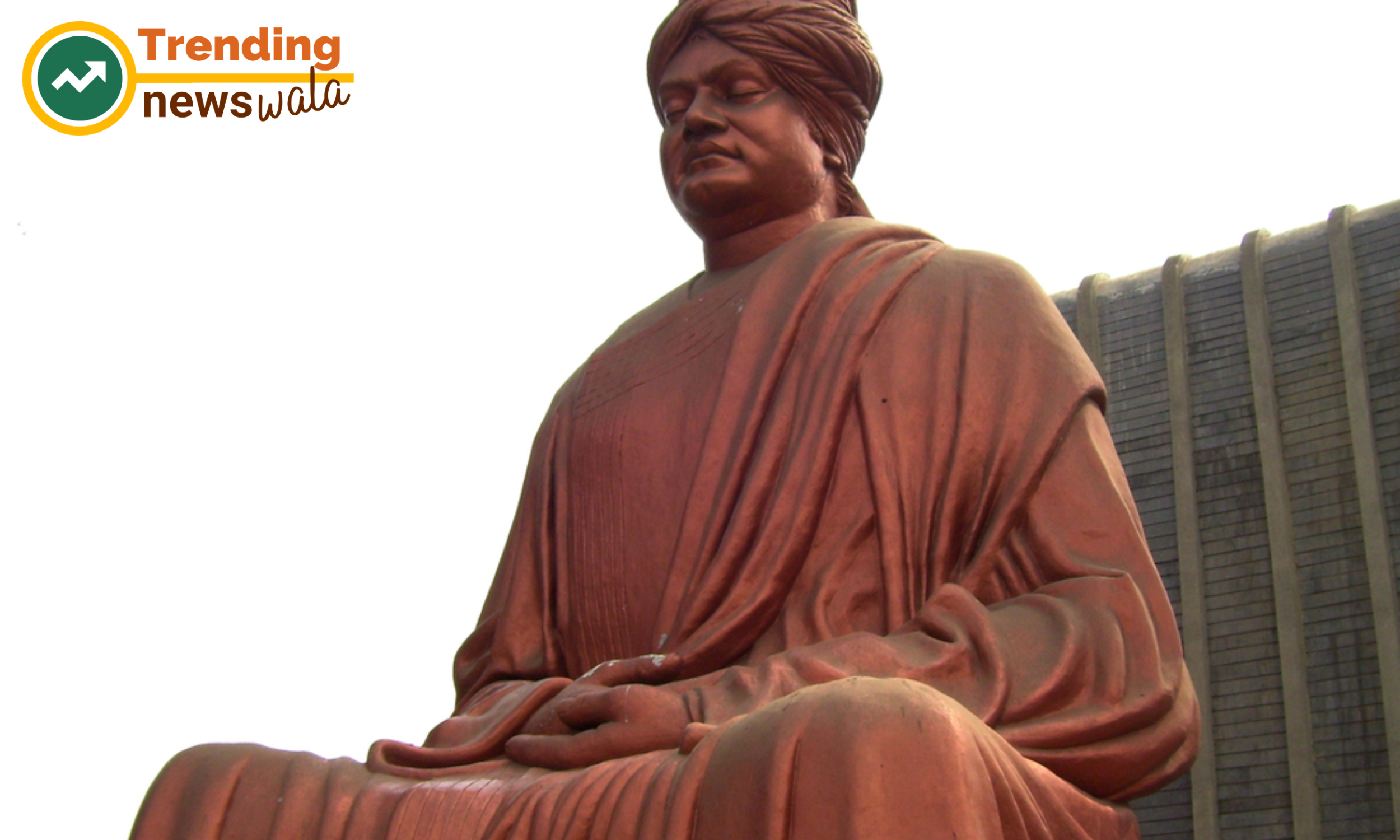
Swami Vivekananda's legacy endures through the institutions he founded, including the Ramakrishna Math and Mission. His teachings continue to inspire millions globally, and his birthday, January 12, is celebrated as National Youth Day in India. His famous quotes, such as "Arise, awake, and stop not until the goal is reached," resonate as timeless motivational mantras.
Legacy and commemoration serve as powerful expressions of human recognition, gratitude, and remembrance. Individuals and events that leave an indelible mark on history become part of the collective consciousness, their legacies shaping the narratives that define cultures and societies. In this article, we explore the significance of legacy and commemoration, examining how they offer a means to honor contributions that transcend time.
Defining Legacy: Legacy encompasses the impact, influence, and contributions an individual or event imparts to future generations. It extends beyond material possessions to encompass ideas, values, and the lasting imprint left on the collective memory of a community or society.
The Power of Commemoration: Commemoration is the act of honoring and memorializing individuals, events, or milestones through various means such as ceremonies, monuments, or annual observances. It serves as a tangible expression of gratitude, remembrance, and a commitment to preserving the lessons embedded in history.
Personal Legacies: Individuals, through their actions, endeavors, and innovations, can leave enduring legacies. Whether it's in the fields of science, arts, literature, or activism, those who have made significant contributions become an integral part of the cultural tapestry, shaping the way future generations perceive the world.
Cultural and Historical Legacies: Cultures and societies also leave lasting legacies through their traditions, art, literature, and societal structures. These legacies serve as a bridge between the past, present, and future, providing a sense of continuity and identity for communities.
Legacy in Leadership: Leaders, whether in politics, business, or social movements, have the power to shape the course of history. Their legacies are often defined by their vision, decision-making, and the impact of their policies on the well-being of their constituents and the world at large.
The Role of Institutions: Institutions, be they educational, religious, or philanthropic, contribute to the collective legacy of a society. The values they uphold, the knowledge they disseminate, and the positive impact they have on individuals all become part of the broader legacy they leave behind.
Commemorative Practices: Commemoration takes various forms, including ceremonies, monuments, and designated days of remembrance. These practices not only pay tribute to the past but also serve as opportunities for reflection, education, and the transmission of values to subsequent generations.
Preserving Cultural Heritage: Cultural heritage, encompassing traditions, artifacts, and practices, is a vital aspect of legacy. Efforts to preserve and protect cultural heritage contribute to the continuity of traditions, ensuring they remain a source of inspiration and identity for future generations.
Learning from History: Commemoration serves as a reminder of both triumphs and challenges. By acknowledging historical events, societies can learn from past mistakes, celebrate achievements, and foster a collective commitment to progress and justice.
Sustaining Inspiration: Legacy and commemoration inspire current and future generations. They highlight the potential for positive change, encourage individuals to strive for excellence, and reinforce the idea that every action, no matter how small, contributes to the broader tapestry of human achievement.
Legacy and commemoration are integral components of the human experience, providing a framework for understanding the contributions that endure across time. Whether personal, cultural, or historical, legacies shape our identities and influence the narratives that define our shared history. Through commemorative practices, we not only honor the past but also carry forward the lessons, values, and inspiration that contribute to the ongoing evolution of societies and civilizations. In recognizing and preserving these legacies, we ensure that the stories of those who came before us continue to resonate, guiding us toward a more enlightened and compassionate future.
Impact on Indian Renaissance
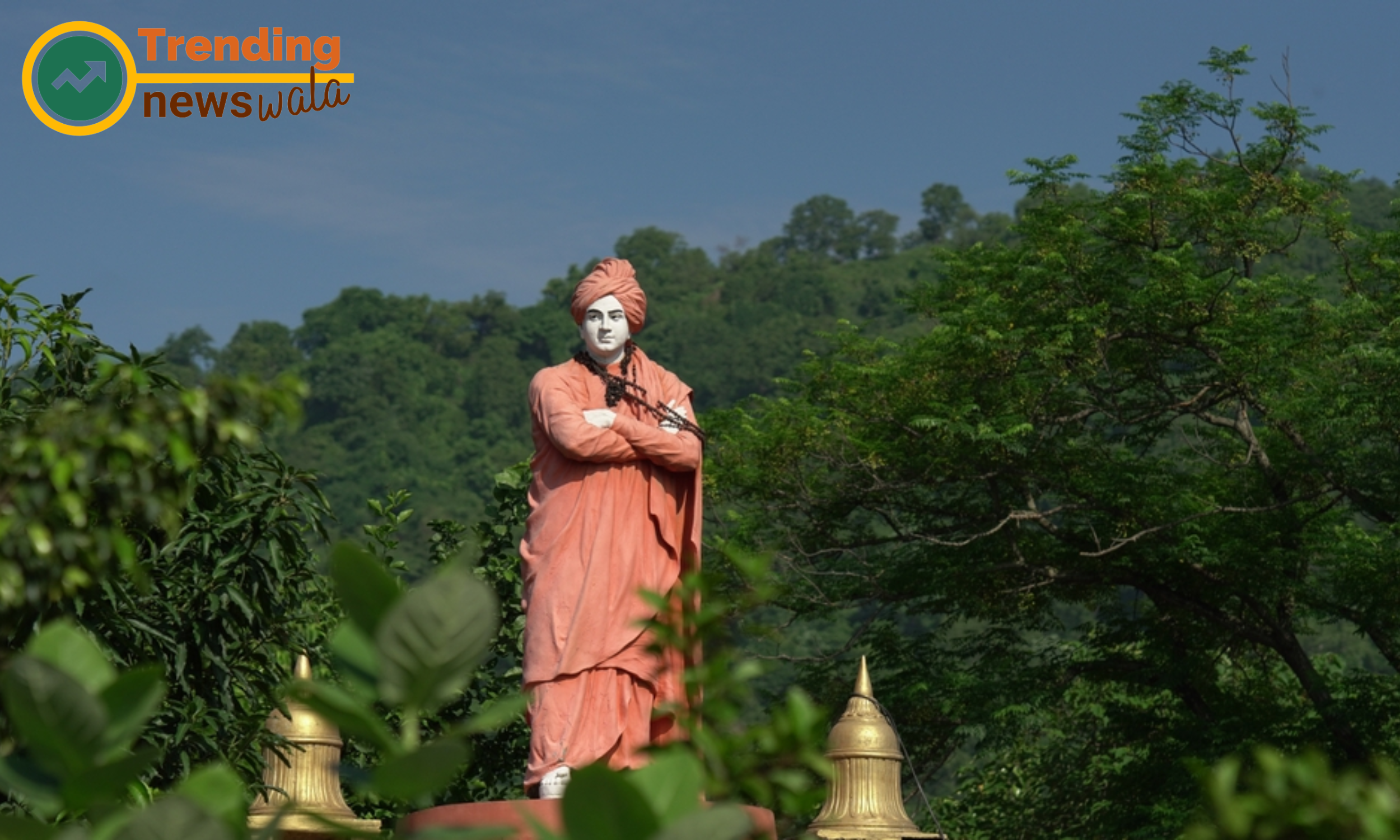
Swami Vivekananda played a pivotal role in the Indian Renaissance, fostering a sense of national pride, self-esteem, and unity. His emphasis on the youth as the harbinger of change and progress influenced the trajectory of India's cultural and intellectual resurgence.
The Indian Renaissance, a period of profound cultural, social, and intellectual resurgence, witnessed a transformative wave of change that shaped the destiny of the nation. The legacy of this movement, which unfolded during the 19th and early 20th centuries, continues to impact India's identity and trajectory in numerous ways. In this article, we explore the enduring influence and legacy of the Indian Renaissance, celebrating the visionaries and movements that catalyzed this era of rebirth.
Defining the Indian Renaissance: The Indian Renaissance marked a departure from traditional norms and heralded a new era of intellectual awakening, cultural rejuvenation, and social reform. It sought to reconcile the rich cultural heritage of India with the demands of the modern world, fostering a spirit of introspection and progress.
Visionaries and Reformers: The Renaissance was characterized by the visionary leadership of individuals who dared to challenge societal norms. Figures like Raja Ram Mohan Roy, Ishwar Chandra Vidyasagar, Swami Vivekananda, and Rabindranath Tagore played pivotal roles in shaping the intellectual and cultural landscape of the time.
Social and Religious Reforms : One of the cornerstones of the Indian Renaissance was the push for social and religious reforms. Raja Ram Mohan Roy, often hailed as the "Father of the Indian Renaissance," advocated for the abolition of Sati and supported the cause of women's education. These efforts laid the foundation for a more equitable and progressive society.
Educational Resurgence: The Renaissance saw a surge in efforts to modernize and reform the educational system. Institutions like the Bethune School and the Hindu College were established to impart a blend of Western and Indian education, nurturing a generation of enlightened thinkers who would go on to shape the destiny of the nation.
Cultural Revival: The renaissance was not merely a political or social movement; it was also a cultural reawakening. Rabindranath Tagore, a poet, philosopher, and Nobel laureate, contributed immensely to this aspect. His works, such as the poems in Gitanjali, and his role in shaping the Visva-Bharati University, exemplify the cultural revival that was at the heart of the Renaissance.
Interfaith Harmony: Swami Vivekananda, through his teachings and the historic address at the Parliament of the World's Religions in 1893, propagated the idea of harmony among different religions. His philosophy of Vedanta and the universality of spiritual truths fostered a sense of unity among diverse religious traditions.
Impact on Literature and Arts: The Renaissance had a profound impact on literature and the arts. The works of Bankim Chandra Chattopadhyay, known for his novel "Anandamath" and the composition of "Vande Mataram," stirred the spirit of patriotism. The Tagore era, often referred to as the "Tagore Renaissance," produced a rich tapestry of literature, music, and art.
Political Awakening: The intellectual ferment of the Renaissance laid the groundwork for the Indian independence movement. Visionaries like Bal Gangadhar Tilak, Gopal Krishna Gokhale, and others were influenced by the reformist spirit, using it as a catalyst for political mobilization and the fight against colonial rule.
Legacy in Modern India: The legacy of the Indian Renaissance is embedded in the fabric of modern India. The principles of social justice, secularism, and pluralism championed by the reformers continue to guide the nation. The emphasis on education, scientific temper, and cultural diversity remains integral to India's evolving identity.
Challenges and Continuing the Legacy: While the Indian Renaissance brought about significant positive changes, it also faced challenges and resistance. Caste-based discrimination, gender inequality, and socio-economic disparities persist, underscoring the need for a continued commitment to the values and ideals that fueled the Renaissance.
The Indian Renaissance was a pivotal chapter in the nation's history, laying the groundwork for a modern, inclusive, and dynamic India. Its impact echoes in the principles enshrined in the Indian Constitution and resonates in the aspirations of a nation striving for progress and unity. By understanding and appreciating the legacy of the Renaissance, India can draw inspiration for addressing contemporary challenges and building a future that reflects the vision of its enlightened forebearers.
Legacy Beyond Borders
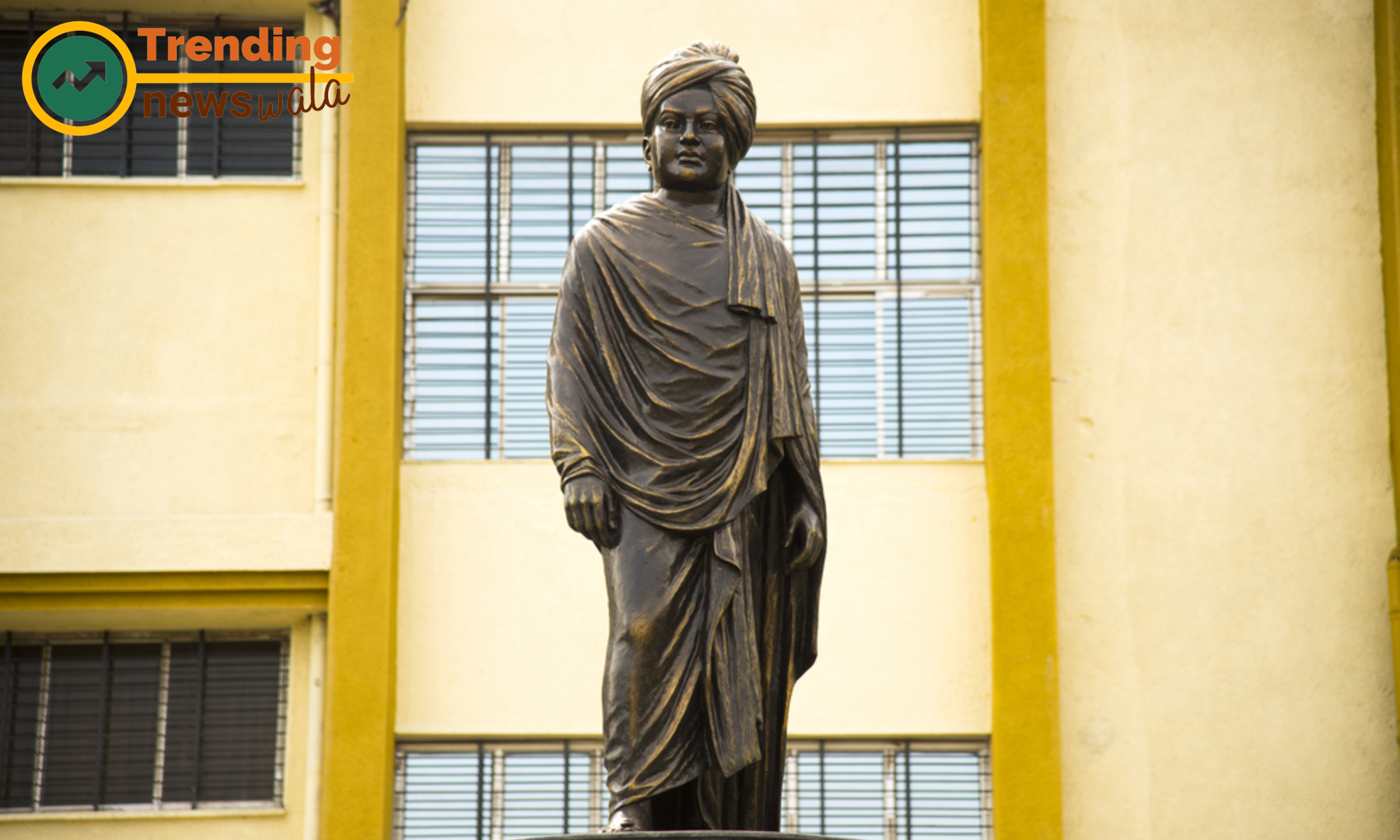
Swami Vivekananda's influence extends far beyond India. His teachings have inspired individuals across continents, fostering a greater understanding of spirituality, tolerance, and the universal principles of Vedanta. His messages on education, character-building, and social welfare continue to guide people on their journeys.
Legacy, the indelible mark left by individuals or movements, often extends far beyond the borders of their place of origin. The influence of such legacies can permeate different cultures, societies, and nations, leaving an enduring impact that transcends geographical confines. In this article, we explore stories of legacies that have crossed borders, fostering positive change and inspiring generations around the globe.
Defining Legacy Beyond Borders: Legacy beyond borders refers to the enduring impact of individuals or movements whose contributions resonate globally. These legacies not only shape the narrative of their home countries but also transcend geographical boundaries, influencing diverse cultures and communities.
Global Icons of Peace: Figures like Mahatma Gandhi, Nelson Mandela, and Martin Luther King Jr. left legacies of peace, justice, and equality that reverberate globally. Their nonviolent resistance movements inspired countless individuals and movements worldwide, becoming symbols of hope and change.
Scientific Pioneers: Scientific legacies often transcend borders as well. The contributions of scientists like Albert Einstein and Marie Curie, whose groundbreaking work in physics and chemistry respectively, have influenced not only their home countries but have become fundamental to the global understanding of science.
Humanitarian Movements: Humanitarian movements that address global issues such as poverty, health, and education often leave legacies that extend beyond borders. Initiatives like the Nobel Peace Prize-winning Médecins Sans Frontières (Doctors Without Borders) exemplify how compassionate action can have a global impact.
Cultural Icons and Artistic Legacies: Artists and cultural icons create legacies that resonate universally. The works of musicians like The Beatles, the cinematic brilliance of Akira Kurosawa, and the timeless art of Leonardo da Vinci have crossed borders, enriching the cultural tapestry of humanity.
Technology and Innovation: The legacies of visionaries in the field of technology, such as Steve Jobs and Bill Gates, have transformed the way the world communicates, works, and lives. Their innovations continue to shape the global landscape, impacting societies far beyond their countries of origin.
Literary Giants: Literary legacies also transcend borders, with authors like Shakespeare, Leo Tolstoy, and Gabriel García Márquez leaving works that are read and appreciated worldwide. Their stories and insights resonate across cultures, offering universal themes that speak to the human experience.
Sports and Cultural Diplomacy: Athletes often become ambassadors of their countries, contributing to a legacy of sportsmanship and cultural exchange. Icons like Muhammad Ali and Pelé, through their prowess and charisma, transcended national borders, becoming global symbols of excellence and unity.
Environmental Stewards: Environmentalists and conservationists, such as Jane Goodall and David Attenborough, have left legacies that extend beyond their home countries. Their efforts to raise awareness about environmental issues have catalyzed global movements for sustainability and conservation.
Challenges and Opportunities: While legacies beyond borders offer immense opportunities for positive change, they also come with challenges. Misinterpretation, cultural nuances, and differing contexts can sometimes dilute the intended impact. Navigating these challenges requires a nuanced understanding and appreciation of diverse perspectives.
Legacy beyond borders underscores the interconnectedness of humanity. The stories of individuals and movements that transcend geographical boundaries showcase the universal nature of human aspirations, values, and struggles. As we continue to navigate a globalized world, recognizing and celebrating these legacies serves as a reminder that positive change knows no borders. It is through understanding, appreciation, and collective action that we can build upon the legacies of the past, creating a future that is enriched by the wisdom and contributions of individuals who left their mark beyond the confines of their homeland.

Who was Swami Vivekananda?
Swami Vivekananda (1863–1902) was a renowned Hindu monk and a key figure in the introduction of Indian philosophies of Vedanta and Yoga to the Western world. He was a disciple of the Indian mystic Ramakrishna Paramahansa.
What is Swami Vivekananda best known for?
Swami Vivekananda is best known for his address at the Parliament of the World's Religions in Chicago in 1893, where he eloquently spoke about religious tolerance, universal brotherhood, and the acceptance of all religions.
What was the significance of Vivekananda's speech at the Parliament of the World's Religions?
Vivekananda's speech at the Parliament of the World's Religions was significant for introducing Hinduism and Vedanta to the Western audience. He emphasized the idea of religious harmony, universal acceptance, and the oneness of humanity.
What were Swami Vivekananda's main teachings?
Swami Vivekananda's teachings emphasized the divinity of the soul, the importance of self-realization, and the pursuit of knowledge. He advocated for religious tolerance, social reform, and service to humanity.
Did Swami Vivekananda establish any organizations?
Yes, Swami Vivekananda founded the Ramakrishna Mission in 1897, dedicated to the service of humanity. The mission focuses on education, healthcare, and relief work, embodying Vivekananda's vision of selfless service.
How did Swami Vivekananda contribute to the concept of universal brotherhood?
Vivekananda believed in the essential unity of all religions and preached the concept of universal brotherhood. He emphasized that different religions are like different paths leading to the same truth, fostering understanding and tolerance among diverse faiths.
What impact did Swami Vivekananda have on India's independence movement?
While Swami Vivekananda did not directly participate in political movements, his teachings inspired many leaders of the Indian independence movement. His emphasis on self-confidence, national pride, and service to the nation influenced the thinking of prominent figures like Netaji Subhas Chandra Bose.
How is Swami Vivekananda remembered today?
Swami Vivekananda is remembered as a spiritual giant, a proponent of Vedanta, and a dynamic orator. His birthday, January 12th, is celebrated as National Youth Day in India. His teachings continue to inspire individuals worldwide in the pursuit of knowledge, service, and spiritual growth.
How can one follow the teachings of Swami Vivekananda today?
To follow Swami Vivekananda's teachings, individuals can engage in self-reflection, practice the principles of tolerance and universal brotherhood, seek knowledge through education and spiritual practices, and contribute to the welfare of society through selfless service. Reading his works is also a valuable way to understand and apply his teachings in daily life.

